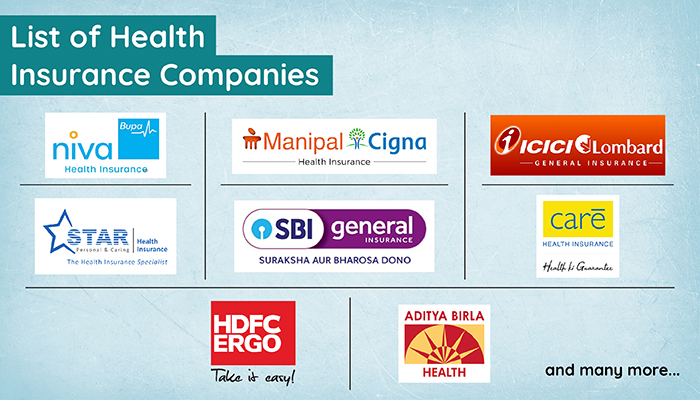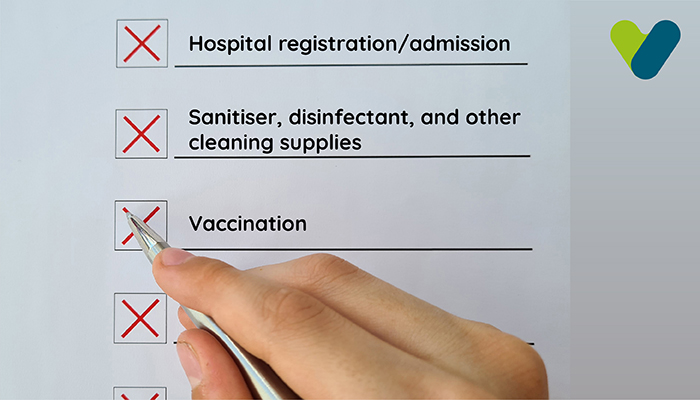An insurance provider's claim-settlement ratio is one of the most crucial factors buyers consider while purchasing their insurance policies. To provide policyholders with a seamless claim application and settlement experience without straying away from their core business operations, insurers appoint entities known as TPAs.
TPA in health insurance stands for third-party administrators. These are organisations, individuals, or entities that are not the insurance providers (first party) or beneficiaries/clients (second party) of an insurance contract. TPAs are instead intermediaries (third parties) who serve as the link between the first and second parties. They specialise in providing efficient administrative services, particularly concerning the claim settlement process. Outsourced by health insurance companies, TPAs' duties include claim verification, settlement, and establishing tie-ups with hospitals, among other things.
TPA In Health Insurance – Expectations and Services Rendered
The following are the standard services or facilities that a third-party administrator in health insurance is entrusted with by the insurance provider.- IRDAI Verification
- Policy Implementation, Claim Processing and Settlement
- 24x7 Customer Care
- Widening the Hospital Network
What Is The Role Of TPA In Health Insurance?
To understand what is the role of TPA in health insurance, it is vital to note that they do not and cannot issue insurance policies. However, they can do the following things.- Issue Health Cards
- Facilitate Pre-authorisation for Cashless Claims
- Process Reimbursement Claims
- Provide 24x7 Customer Support
- Tie Up With Hospitals
- Make Timely Reports
- Offer Additional Services
How To Make Claims Via TPA in Health Insurance?
Now that you know what is TPA in health insurance, here's how you can use their claim services.Firstly, you need to inform your insurer and the TPA of your planned medical treatment as early as possible. Planned treatments are surgeries or treatments for which you are undergoing proper diagnosis, and the medical professional has confirmed the need for the procedure. In case of unplanned treatments like heart attacks, strokes, accidents, etc., you must inform your insurer and TPAs within 24 hours of hospitalisation.
Steps to File Claims When Receiving Treatment at Empanelled Hospitals
TPAs usually tie up with a vast network of hospitals. They spot-check to ensure the healthcare facility offers the best medical care. Since the TPA has already verified the hospital, you can enjoy cashless claims, where the insurer and TPA directly settle your bills. The steps to follow to file cashless claims are as follows:- Fill out and submit the pre-authorisation and cashless claim form at the earliest before getting admitted to a network hospital for planned treatment. In case of emergencies, you can fill out the form after admission within 24 hours.
- The hospital sends your medical reports and bills to the TPA.
- The TPA verifies the data and determines whether or not to approve the claim.
- If the claim is approved, the TPA settles your medical bill with the hospital on the insurer's behalf.
Steps to Follow When Receiving Treatment at Non-empanelled Hospitals
You also have the choice to receive treatment at non-network hospitals and file reimbursement claims. Once you are discharged from the hospital, you can begin the claim reimbursement process. Just follow these simple steps.- Reserve the original copies of all medical reports, documents, and medical bills.
- After being discharged from the hospital, you must send these documents along with a copy of your medical insurance policy in either physical or electronic form to the TPA within 30 days of the discharge date.
- The TPA can take anywhere between two weeks to a month to review your documents and ask for additional documents if required.
- The insurer approves the claim and credits the claim amount to your registered bank account.
Benefits Of Third-Party Administrators In Health Insurance
By appointing TPAs, insurance companies are at an obvious advantage. TPAs help insurers streamline the claim process and reduce the number of fake claims. However, when it comes to understanding what is a TPA in health insurance, you should also know how a TPA's role impacts policyholders.- You can avail of customer support, right from hospitalisation to discharge, through the TPA.
- You can receive proper guidance for documentation and claim settlement procedures.
- The TPA member ID cards aid you in receiving cashless treatments.
- The TPA is at your service round-the-clock.
- TPAs can offer prompt and efficient claim settlements as that is their sole business module.
- You can receive treatments under government schemes as well.
Government Schemes & TPAs
In recent years, the Government of India has rolled out numerous healthcare schemes to empower marginalised communities. Numerous TPAs may also offer claim settlement services for such schemes. A few popular government schemes include the Rashtriya Swasthya Bima Yojana (RSBY), Ayushman Bharat – Pradhan Mantri Jan Arogya Yojana (AB-PMJAY) and state-wise health insurance schemes.What You Should Know About TPAs In Health Insurance
TPAs are individual companies licensed by the IRDAI to settle claims on behalf of the insurance company. However, there are certain limitations that you, as a policyholder, should know about when understanding what is TPA in health insurance:- They are not the decision-makers.
- They cannot charge you money.
- They are independent of the insurance company.
- Insurers often employ multiple TPAs.
- You may have the option to change TPAs.
List of TPA Agents
An organisation registered under the Companies Act, of 1956, with a share capital, can operate as a third-party administrator. TPAs must register for the license with the IRDAI and renew it every three years. As on 30th September 2022, the following TPAs can carry our administrative health insurance duties across the country.
| Reg. No | Company Name | Website |
| 002 | Medvantage Insurance TPA PVT LTD | www.medvantagetpa.com |
| 003 | Medi Assist Insurance TPA PVT LTD | www.mediaassist.in |
| 005 | MDIndia Health Insurance TPA PVT LTD | www.mdindiaonline.com |
| 006 | Paramount Health Services & Insurance PVT LTD | www.paramounttpa.com |
| 008 | Heritage Health Insurance TPA PVT LTD | www.heritagehealthtpa.com |
| 013 | Family Health Plan Insurance TPA LTD | www.fhpl.net |
| 015 | Raksha Health Insurance TPA PVT LTD | www.rakshatpa.com |
| 016 | Vidal Health Insurance TPA PVT LTD | www.vidalhealthtpa.com |
| 018 | East West Assist Insurance TPA PVT LTD | www.eastwestassist.com |
| 019 | Medsave Health Insurance TPA LTD | www.medsave.in |
| 020 | Genins India Insurance TPA LTD | www.geninsindia.com |
| 022 | Health India Insurance TPA Services PVT LTD | www.healthindiatpa.com |
| 023 | Good Health Insurance TPA LTD | www.ghpltpa.com |
| 025 | Park Mediclaim Insurance TPA PVT LTD | www.parkmediclaim.co.in |
| 026 | Safeway Insurance TPA PVT LTD | www.safewaytpa.in |
| 027 | Anmol Medicare Insurance TPA LTD | www.anmolmedicare.in |
| 035 | Ericson Insurance TPA PVT LTD | www.ericsontpa.com |
| 036 | Health Insurance TPA of India LTD | www.hitpa.co.in |




